Interview With Pascal Malkoun, Management Team of Karl Wolf
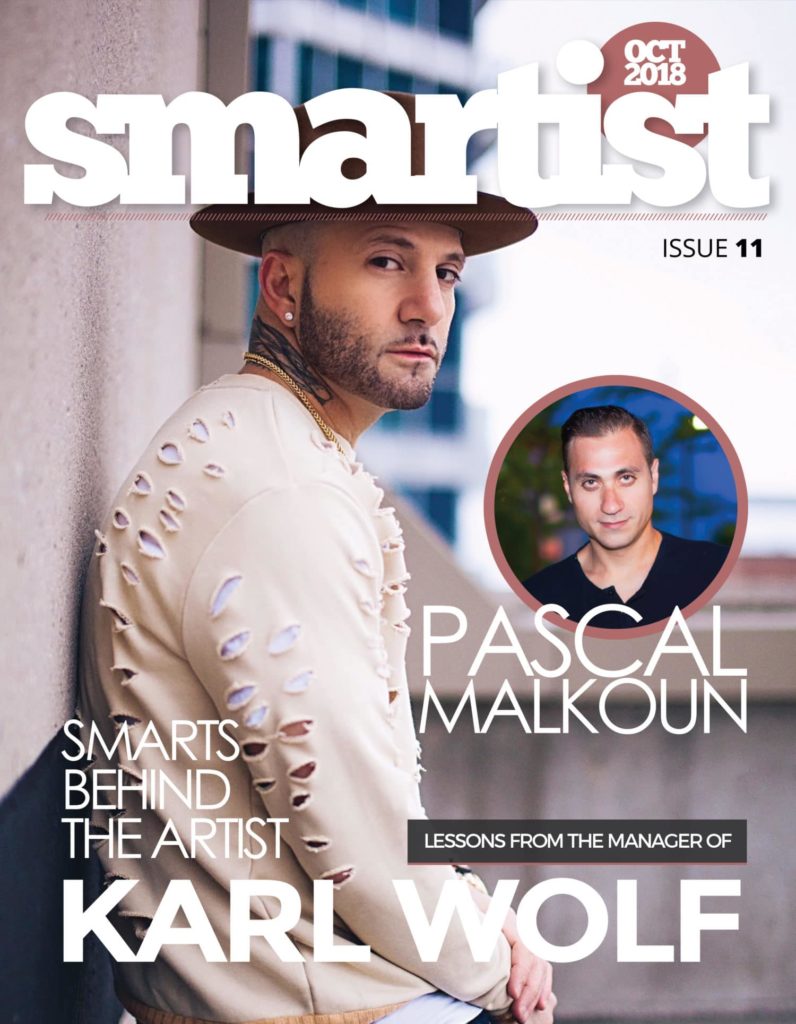
In This Interview:
- Their early strategy of selling albums off stage during meet and greets
- Always making sure you put your best product out there, covering all marketing bases, and the rest follows as it should
- Growing your circle, your network, constantly meeting new people to create the best artistic collaborations
- The managers role when the artist is signed to an indie label versus a major label
- How the biggest “clout” is talent, and how important it is to network and show people your talent
- How they went international with their Middle Eastern meets Western music vibes, as well as their connections to EMI Music Arabia, which led to EMI Japan
- How important it is to always release new product and keep the momentum going to avoid being forgotten about
- His biggest piece of advice
- And much more!

In this edition of Smartist Magazine: Smarts Behind The Artists we hear from 10-year music industry manager, project manager, marketer, and all around great guy, Pascal Malkoun.
Pascal Malkoun got his unintentional start in the music business in 2006, when he joined on the team of Platinum-selling singer/songwriter, Karl Wolf, at Lone Wolf Entertainment. Over the years, Karl Wolf has written and collaborated with Omi, Timbaland, Fatman Scoop, Kardinal Official, 36 Mafia, and most recently, Nelly.
While studying Commerce and International Business at Concordia University in Montreal, Pascal and Karl met through a friend, leading to their decision to work together. Starting with marketing efforts, Pascal soon moved on to become Karl’s manager; celebrating a #1 hit for the song Africa, just a few months later.
Read on for our interview with manager extraordinaire, Pascal Malkoun.
You’ve released seven albums with Karl. What would you say was the most successful release, and why?
It was Bite The Bullet [2007]. Bite The Bullet had Africa on there. Because Africa was a number one hit, the sales were relative to the success of the single. I remember back in the day when we had first started here in Canada, after Africa reached number one, we had extremely long line-ups of people waiting to meet Karl and buy the album. We had shows with the likes of Akon and Flo Rida, and big summer festivals. I remember, the fans just leaving their seats at the concerts, during the headliner’s set, and heading on over to Karl’s so called “quick” meet and greet. We thought that we could squeeze in a quick meet & greet with the fans between changeovers, given you usually have a 15 to 20-minute layover between sets. But then these meet and greets would end up taking, two to three hours. We would take that opportunity to sell albums off-stage simultaneously. We sold a ton of albums back then which is why that was definitely the most successful album release.
At that point, were you already a full-time manager, or was that your tipping point to be able to become a full-time manager, and earn a living from it?
No, actually, I was a full-time manager back then. But had just started a couple months before that. I started to become a full-time manager back in January ’09. And funny enough, I believe in March 2009, the song Africa hit number one here in Canada. That was a life-changing opportunity.
Just a few months in to you becoming a full-time manager?
It’s two-months – exactly. It might be a coincidence, it might just be the energy behind it between Karl, and myself, and the focus, I don’t know what it was. But hey, it was like magic, it happens. And I’m very grateful for it!
Africa, and Amateur at Love are both hitting 5 million streams at this point. Can you tell us about your strategy for how they turned into hit singles?
Sure. I mean, it often comes down to a “je ne sais quoi” with Karl’s releases. Karl is an amazing talent. He’s a writer, producer and multi-instrumentalist. He really puts his heart into everything he does and I’m happy to have been able to help him share his music out to the world. His music is often a blend of today’s sound mixed with that signature “Karl Wolf” sound. Even though it doesn’t always follow a specific formula designed to guarantee an add on certain playlists, it’s important for the artist to keep their artistic integrity and make music that reflects them as an artist. All we can ensure is that we have a great product out there and push it to its maximum potential. However, not all singles perform equally. At times, we have songs which I believe are, massive hits. And then we release them, but they just don’t react as we thought they would. At other times, we have songs that we don’t expect for them to make as great an impact, but then the public reacts greatly to them. There is never a guarantee that your single will be a big success, no matter who wrote it, produced it or how much money you put into it. Regardless, we do our best to get it up there on the charts. But I mean, the main thing is that we ensure that we have a good product out there, an excellent song that the audience can connect to. And we also do everything we can, to cover all other bases. We are in constant communication with the labels that Karl is signed to across the world. We have them push the single to radio stations and streaming sites such as Spotify and Apple Music and Anghami (in the Middle-East) as much as they can. Our PR makes sure the single/album is in the hands of all major traditional and digital media outlets. We do a lot of online marketing and we do a lot of live shows, especially in the summer. Karl for instance is extremely active on social media and is excellent with delivering new and exciting online content, which has lead to an increased amount of fans, from across the world, following his daily posts. Our plan is really to not leave any stone unturned. We just give it our all using our knowledge, resources and experience, and hope for the best.
Do you have a playlisting strategy, or, you said you have a label?
Lone Wolf Entertainment is technically the label. But we normally don’t release independently. We license our products out to different labels across the world. For instance, right now in Canada, Karl is signed to Cordova Bay Records. Before that, he was signed to Universal Music Canada. We always license everything out, because we are a small team. The strategy behind it is to license the music to record labels that do this full time, so that we can focus on the management, the production, and on making good music.
Did you ever prioritize trying to get signed to a major after EMI and Universal, or did you want to go independent, with an independent distributor?
No, it was – it was a transition really. Karl was signed to EMI Music Canada, and then we decided that it was no longer the best scenario for him. We had an opportunity to move on to Universal Music Canada, that’s even before Universal had acquired EMI. We basically worked it out between the two labels, and we made the transition from EMI to Universal with the understanding that Karl will be a priority artist on the Universal roster. From there, we released Ghetto Love which was also a big hit, earned us a Gold record, then we released another one, Mash It Up which was another Gold record, almost Platinum actually. About two years ago, we felt that Cordova Bay was the best route to take for Karl’s career at the time, given the attention and commitment they were offering the project. The most important factor we consider when choosing a label is not necessarily the size of it, but the belief that the team has in the artist and in the project. The team will push hard if they are excited about what they are working on.
How does your role as a manager differ — when your artist is signed to a major label, versus when you’re doing it independently? How does your role as a manager change?
My role as a manager is principally the same, but with some key changes. When you’re partnering up with a major label, you have more staff on the team. With major labels, everything has its own department, with people specializing in each of these departments. So I found myself working and coordinating with a bigger team.
The good thing about major labels is that they have more clout and their network is bigger, simply because they have a strong brand and a bigger team behind them. So if you are signed to a major label and your songs are doing well, you will most likely get more opportunities with radio, promotional events, brand partnerships, all that stuff. When you are dealing with an indie label, you find yourself working with a smaller, yet very efficient, core team that knows how to get the job done. My role as a manager remains essentially the same in both scenarios, but I just feel like you have to hustle a little harder and be creative to find ways of generating interesting opportunities to continue building the artist’s brand when you are signed to an indie, just because you don’t have that big name behind you. Being with an indie label also comes with its advantages, given the team normally uses a more intimate approach, when they are building and executing a campaign.
Download our free artist management start-up kit!
Karl is an award-winning songwriter, can you explain to us your role as a manager, in relation to planning to his songwriting?
Yeah. I mean, a lot of the times, he does his songwriting on his own. However, I have been a part of a few collaborations you could say. Not only as a manager of an artist, but as the manager of a songwriter, and a producer (which is also Karl). Planning songwriting sessions is the easy part. The most important part I would say is to grow your network of talented songwriters and producers, that would increase your songwriting and placement opportunities. It’s all about keeping a healthy ecosystem going though great working relationships and working in good faith.
Karl has had some pretty cool collaborations over the years, with Timbaland, Fatman Scoop, Kardinal Official, 36 Mafia, and then most recently he has Nelly on his latest single, Way Low, which is really cool. Can you tell us about how that one particularly came about? How did you guys get connect with Nelly, and how did this whole conversation happen?
Absolutely. Well, basically, Karl was working on Way Low, and that was our lead single for the album “Blacklight: Export Vol 2”. That was our champion single, and we needed a big name on it in order to make a worldwide impact with the song on radio, and on DSP [digital service platforms such as Spotify]. We had our US management team, DND Endeavors, based in New York, who are connected to Nelly. So they [DND] had proposed the idea of collaborating on it to Nelly and his management. They heard the song and really liked it, so they agreed to jump on board. It was a nice coincidence that Karl was in LA when all of this was happening. Nelly happens to live in LA right now, so they just went to the studio, and got this done. It was meant to be!
Is Karl signed to a publisher that helps with these collaborations, or is it solely management?
He is signed to the BMG Chrysalis in LA. I would say they play more of a reactive role with Karl’s publishing, instead of a proactive role for the time being. We basically just do everything in-house, I would say, everything when it comes to opportunities. I’m not sure if you know this, Karl had the opportunity to work with Omi and Jenson Vaughan, on his [Omi’s] record, Hula Hoop which went Platinum in several parts of the world. That was a huge success, and we did that ourselves through obviously our networking, and our relationships.
How did you connect with Jenson, for him and Karl to write together?
Back in the day, Jenson had reached out to myself and to Karl actually, and he was like “Hey. I want to write.” And that was a long time ago, I’m talking about like, maybe seven, eight years ago. He’s a great guy, such a hustler and I love him for that. He’s like, “When are we going to write with Karl? I’ve written for such and such.” Karl said yes to the opportunity. So they went in, started writing and trying things out, and then from there, the relationship just developed. That’s how that happened. Seven or eight years later, and now, Karl has written a couple good ones with him.
Let’s say you’re a new manager, and you’re managing a new artist, and you want to set up some collaborations with other artists, but you don’t have clout, and you don’t have a big following—what would your advice be for a newer manager to start setting up cool collaborations?
Advice, I would say just keep networking, keep growing your circle of contacts. Keep at it. Go to all the important industry events to network. This will help develop professional relationships. Keep growing your circle of networks and contacts. Never say no to opportunities when invited to work at the studio or to writing camps. Show that you are talented whenever you can. Credibility, I would say, doesn’t only come from what you’ve done, or your name. It also arises once other artists or managers see that you are an extremely talented person. Once this has been identified, they’re going to want to work with you.
I believe the biggest clout that somebody can have is talent. Once you display that you are a talented musician, with the right direction, things just kind of fall in place. It’s very important that you show people that you are talented whether you’re singing while playing keys, or singing and playing guitar, or just singing out-right. As long as you do things right, and you are amazing at it, I think that speaks for itself and people are going to want to work with you. Lastly, it’s equally important to be honest and easy to work with in order to maintain and grow your working relationships. Doing good business goes a long way.
Becoming well-known in your country is one thing but going international is a completely different thing. You guys have done really well around the world, most particularly in Japan and the Middle East. How would you say you guys got international success?
That’s a good one. I think just one thing leaps to another really. Back in the day, I can’t really give myself any credit for Karl’s accomplishments. When it came to the Middle East, it was his dad that had contacts with EMI Music Arabia back when Karl first started his solo career. So he had gotten into that office, and the label back then really liked Karl and saw something special and unique. And from there, they started developing a campaign – and they were actually the first ones to believe in the project and to release Face Behind The Face, which was Karl’s debut album.
I remember us doing two in-store meet and greet appearances and there were huge lineups of fans, purchasing the album, and wanting a picture and an autograph from Karl. It really started from there, and that’s because of the music. People were able to relate to that. It’s really the music that was the catalyst, it had that Middle Eastern vibe to it, so it’s a fusion between Middle Eastern and Western music. It was a pretty cool thing, and Karl was really one of the first people that was able to take that and make it mainstream.
From there, because we had a very successful campaign with EMI Music Arabia. The label presented [the song] Africa to EMI Music Japan, and they loved it. We agreed to go ahead and release in Japan. That thing went berserk actually. We sold I believe, over 700,000 copies of Africa back in the day. We did this whole Japanese tour in parallel to a full PR campaign. It was non stop. The Japanese label even arranged to shut down a main street and set up a big Karl Wolf outdoor concert. Karl Wolf trucks all over the place, I wish I could show you.
And I really believe that the determining key factors, were the fact that we had a great product out there as well as very good timing. People were able to relate to those songs. Connections were used wisely. Solid example of the snowball effect.
When you plan an album release, do you also plan a touring strategy?
Ideally yes. We start by planning a release party where Karl performs some of his songs on the album. We normally also plan a big media run which includes TV, radio visits, Sirius XM, magazine interviews, blogs, promotional events, etc. Karl’s album releases are usually in the spring/summer, given he is considered a summer artist. This is normally followed by a slew of summer festivals and live shows, where we have the opportunity to promote the release. If we have the opportunity to go on tour, whether it’s Karl’s own tour, or if Karl’s a supporting act on an even bigger tour, then we go ahead, and do that. Touring is really in final piece of the puzzle of a successful campaign and it’s very fulfilling, for us as a team, to see this come to fruition.
You just signed a new artist named Brandon Scott. Would you say now with the new artist, especially him being a different genre, that your strategy is a little bit different than it is with Karl?
Well, yeah. First of all, I co-manage Brandon Scott with my long-time buddy and management colleague, (Adam Siripathane). He is more the day-to-day manager for Brandon Scott given the fact that he’s a little more seasoned in the country music business, given his experience managing Jason Benoit. I mostly deal with contract negotiations, deals, strategy and a little bit of everything.
But I would say the difference really is that – It’s not the same genre. The music is different, the fan base is a bit different too. In my opinion, country music fans are more drawn to attending live events. They love their live music and their parties. We have to use that to our advantage to elevate the fans’ experience and relationship with the artist. The core marketing strategies however are essentially the same. Regardless of the music genre, we adapt to the target audience, push to solidify the artist’s brand and constantly increase product awareness, whether it’s with brand associations, live shows and festivals, radio opportunities, social media, playlist placement on DSP, etc. We just like to cover all bases as per usual.
You co-manage both of your artists; how does that work?
Well, for Karl, I’m the main manager. I manage him worldwide and then we have some on-the-ground representation in different parts of the world. We also have different booking agents around the world that look out for opportunities in their respective regions. Everything that needs to be done still essentially has to go through me for approval, therefore we work hand-in-hand together. This helps me avoid spreading myself too thin.
And as far as Brandon Scott, like I said, I co-manage him with my colleague, Adam. He is more the day-to-day manager, whereas I mostly take care of the legal and business-related tasks, such as contracts, live show negotiations and product delivery, to name a few. We normally work on all opportunities hand-in-hand and we keep each other informed on everything in order to remain on the same page. We operate as a team, we have no choice but to divide tasks in order to maximize our efficiency and avoid stepping on each other’s toes. Team work! With that in place, I find myself able to focus on more than just one artist.
What is next for you guys over the next six to twelve months?
Six to twelve months. I don’t know. Joking [laughs]. We had an extremely busy and successful summer with lots of touring and an international hit with DJ Antoine and Fito Blanko, called “Ole Ole”. It was essentially the official World Cup song for Team Switzerland and in turn became one of the official songs for the tournament. It was even playing in the stadiums in Russia before the games. What a crazy feeling that was! Right now, we are working on building Karl’s special line of hats and other items that I cannot reveal at the moment. We are also working on some very interesting collaborations with a few international artists. This is in addition to the new material Karl is working on in Toronto and in LA. Karl being a summer artist will be part of a bunch of live festivals in Canada and across the world once the weather warms up again.
For Brandon, we’re working on some new music right now, and working on his album. And yeah, we just keep pushing in order to keep his new brand growing. We’re about to release a new single shortly. It’s important that we always have new product, new music out there for the audience and keep an eye out for new and exciting opportunities at this stage of his career. We have no choice, but to do that in order to keep the hype up and stay ahead of the game.
On a separate note, it’s crucial for us to keep the momentum going regardless of the artist in question. Part of that momentum is knowing when to take a break and when to come back into the public eye. You might get burnt if you come back too soon or if you go away for too long. It’s about finding that perfect balance between both. This plays an important role in the audience’s excitement and perception towards an artist.
What was your biggest “burn”, and what was your biggest lesson from that burn?
Wow, great question! My biggest lesson, without really getting into it, is to ‘keep my circle tight’. We are in a cutthroat business here. The music industry is like the wild west of businesses. It’s not like there are any specific unions out there, where you can go and complain to for malpractice, unless it has to do with copyright infringements – so it’s really important that you work with people that you fully trust and that you’ve had some history with. The team has to be organic. If you don’t do that, then you actually might get burnt. Build a small circle of people that you trust, and just work with them. I’d rather work with three people that I truly trust, or even one person that I truly trust, as opposed to working with seven or eight people that I believe can bring a lot to the table, but that end up betraying me in one way, or another, simply because my relationship with them is not deep enough for them to care enough about my hardships in consequence to their disloyal actions. Loyalty is everything in any business. So really, just keep your circle tight, make sure you work with people that you trust, and that may trust you back, and you have that work chemistry between one another. If you do that, you’re fine. Whatever you do, just choose your people carefully. Choose your team carefully and then work as a family.
Big thanks to Pascal for taking the time to share his and his artists’ stories!
Whose business do you want to know more about? Tell us at hello@smartistu.com or check out more interviews here.
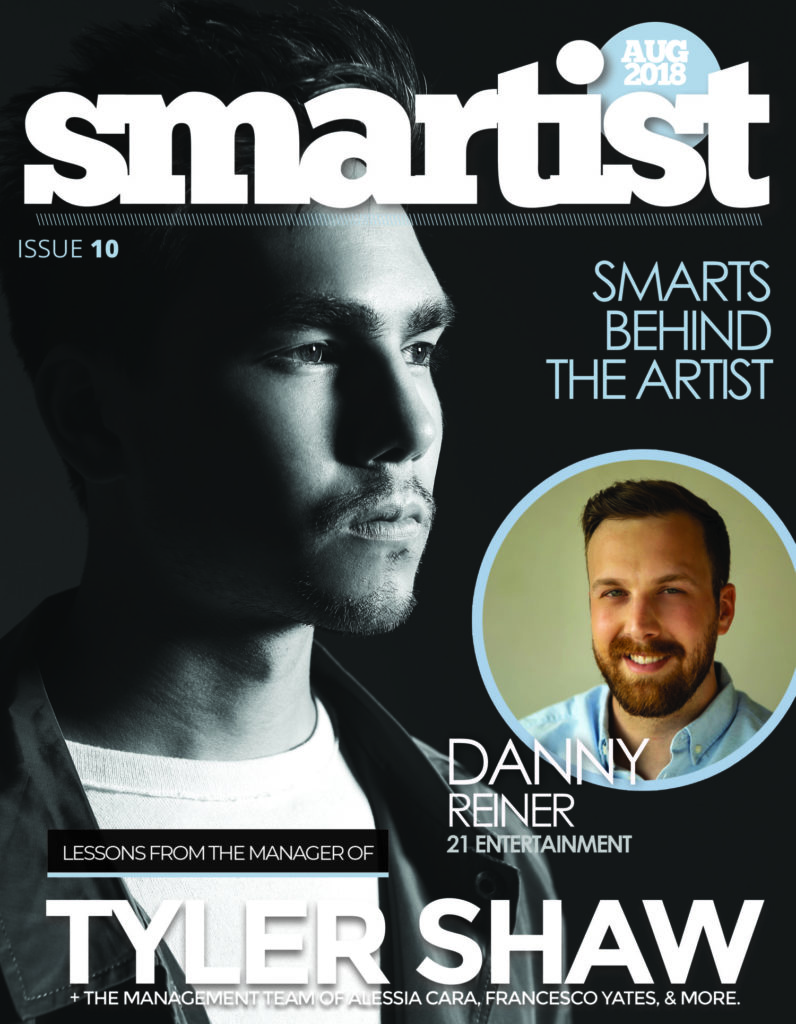
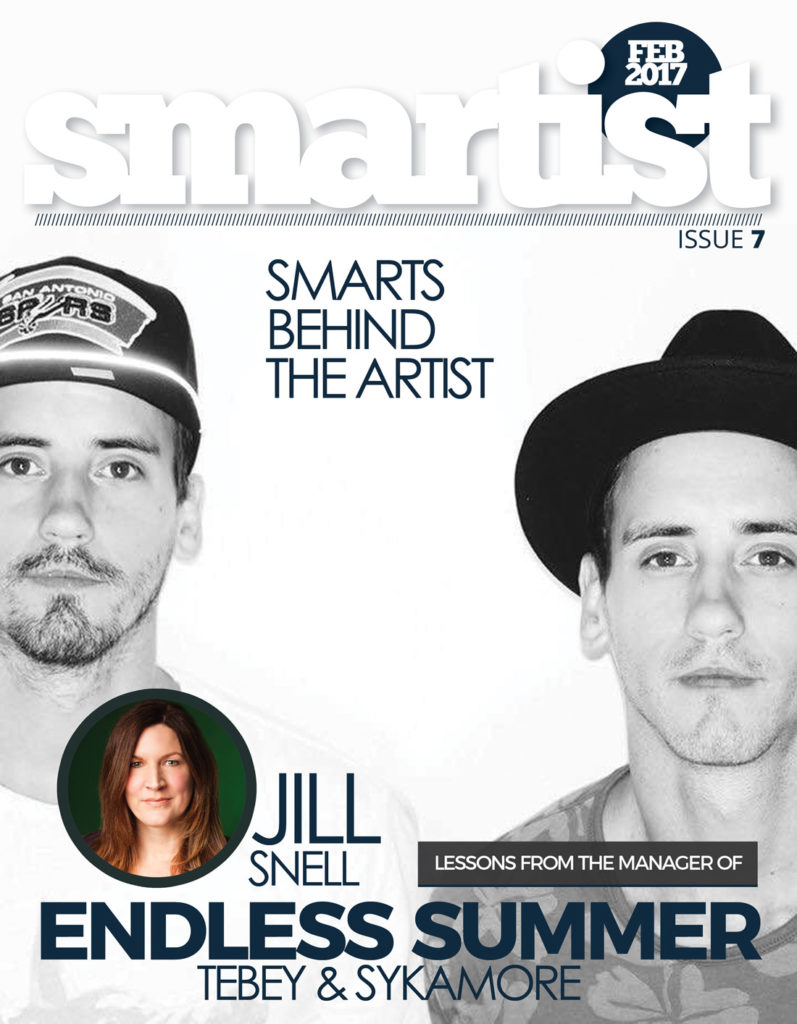
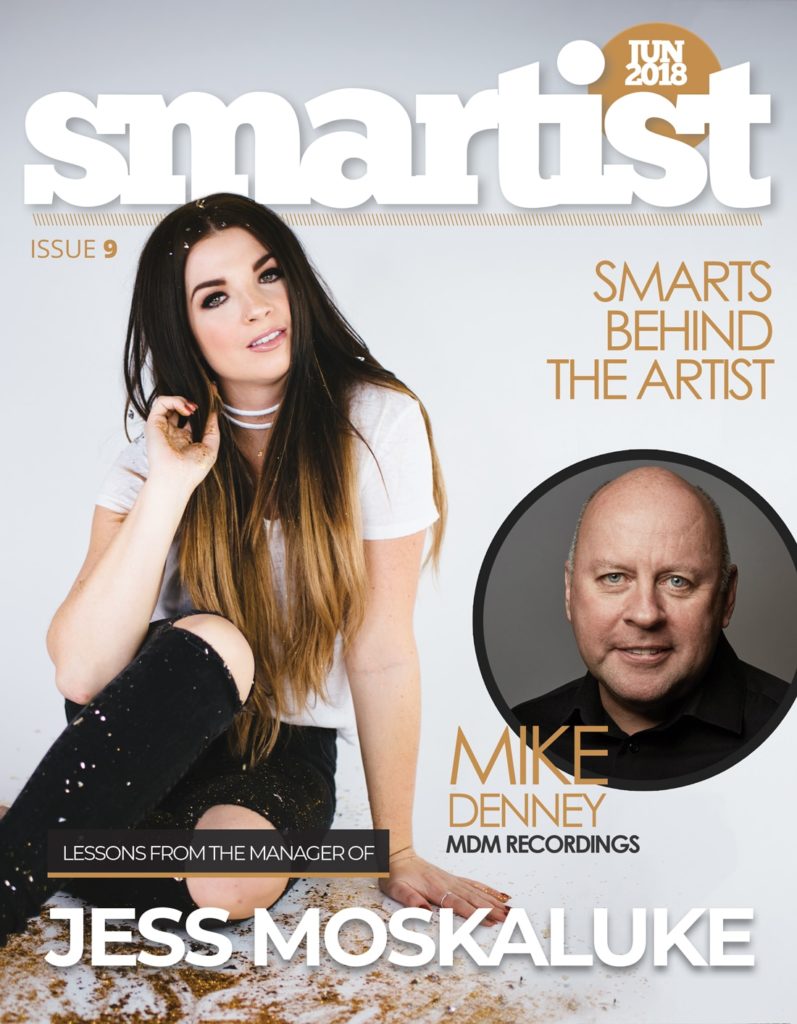
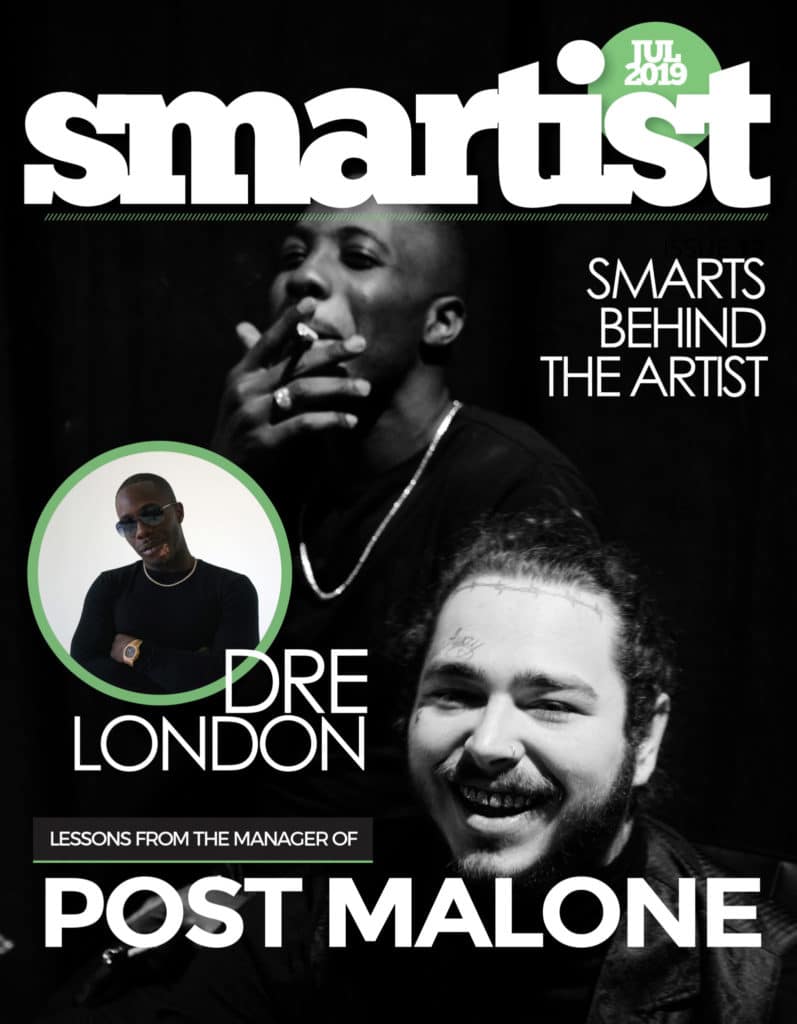
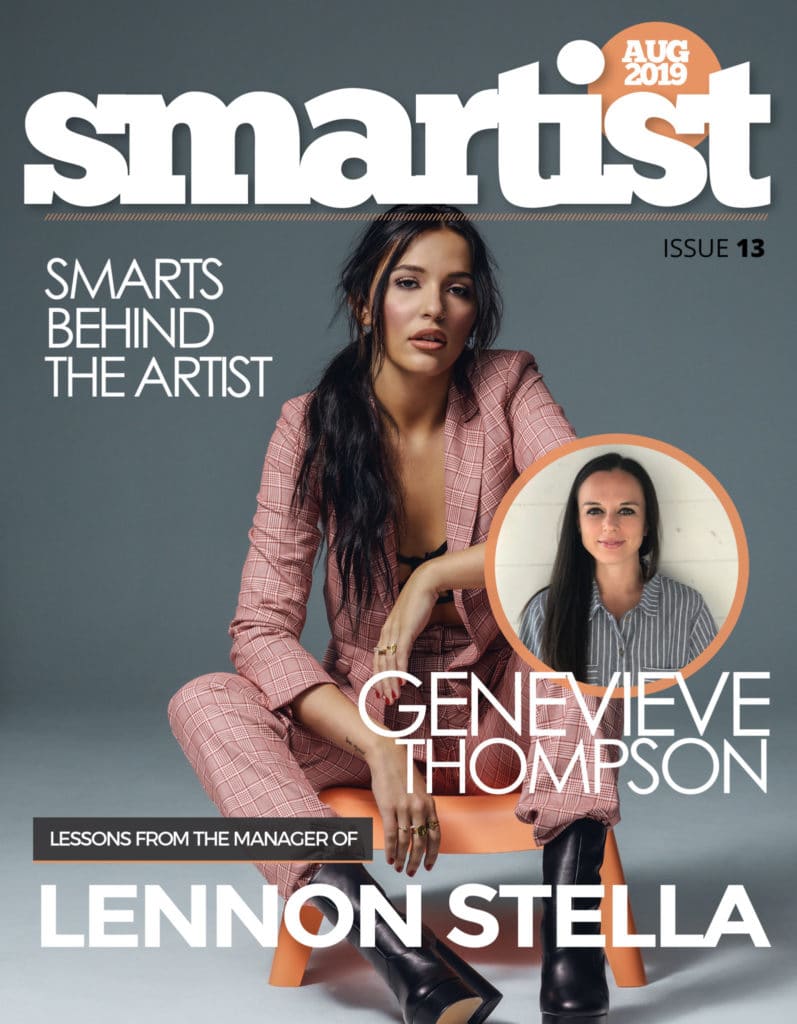
Responses